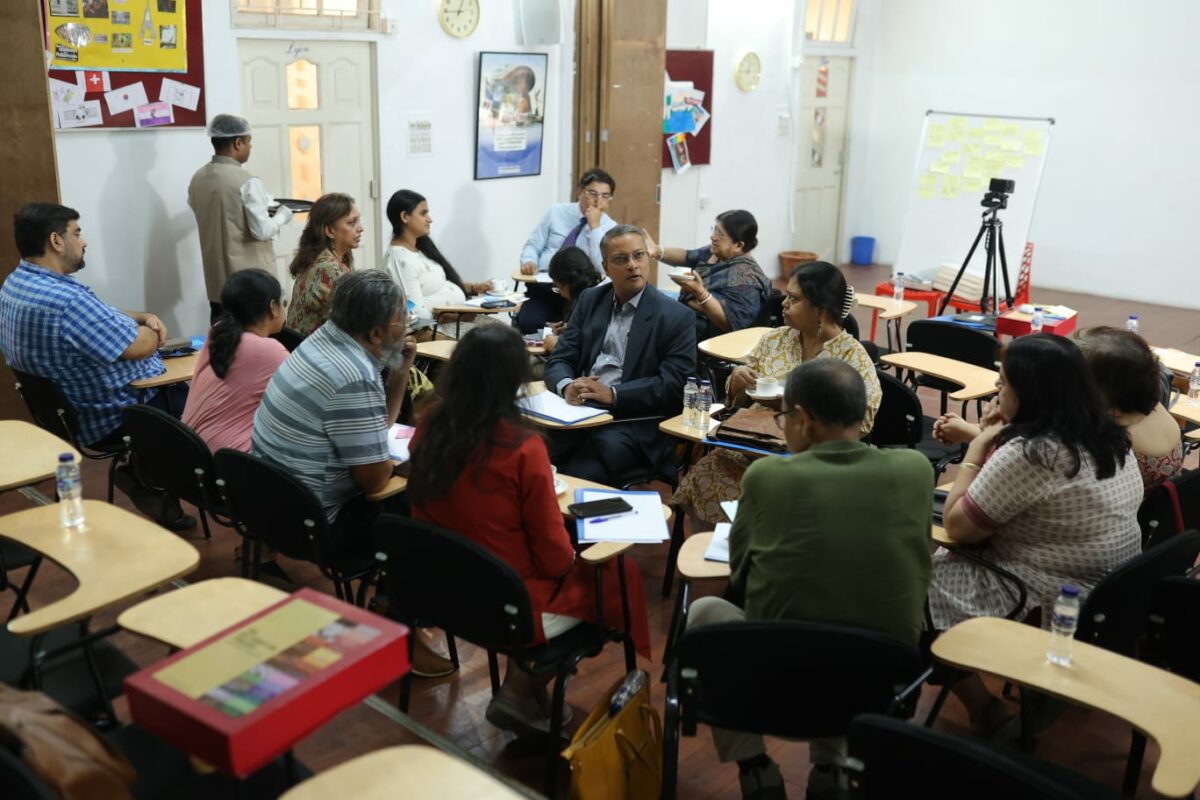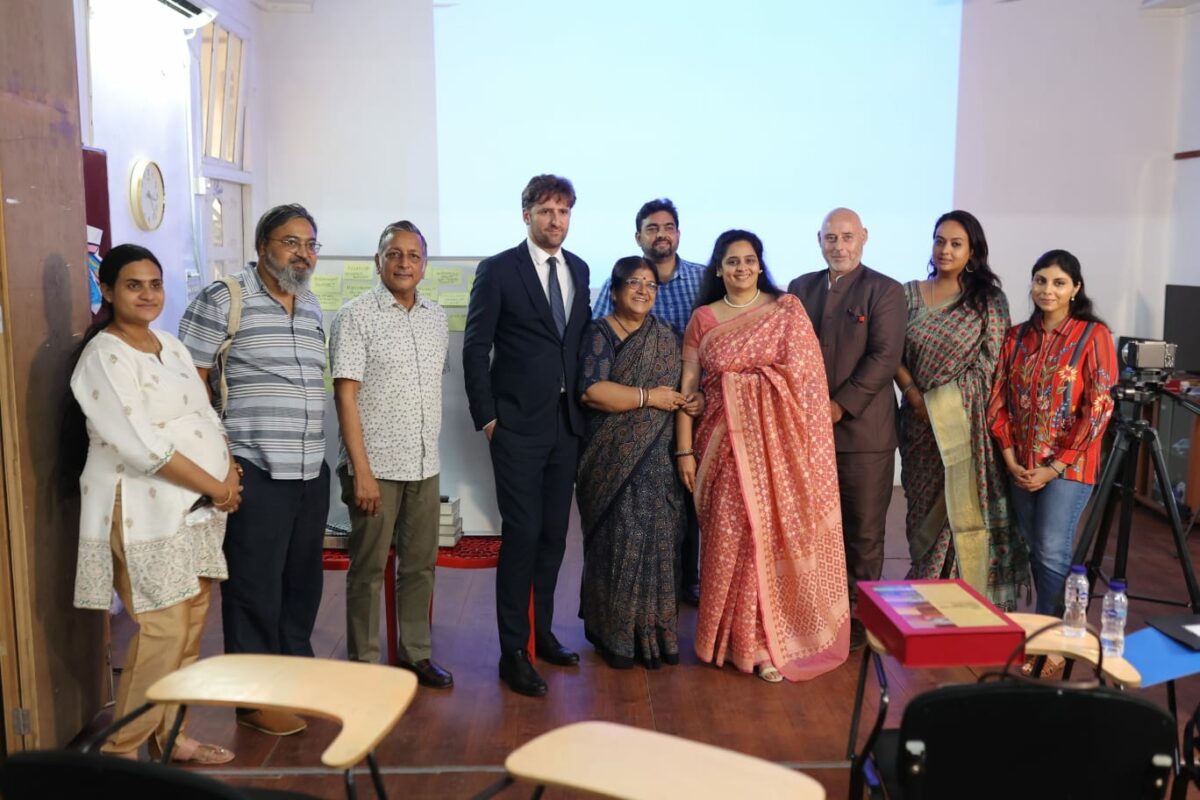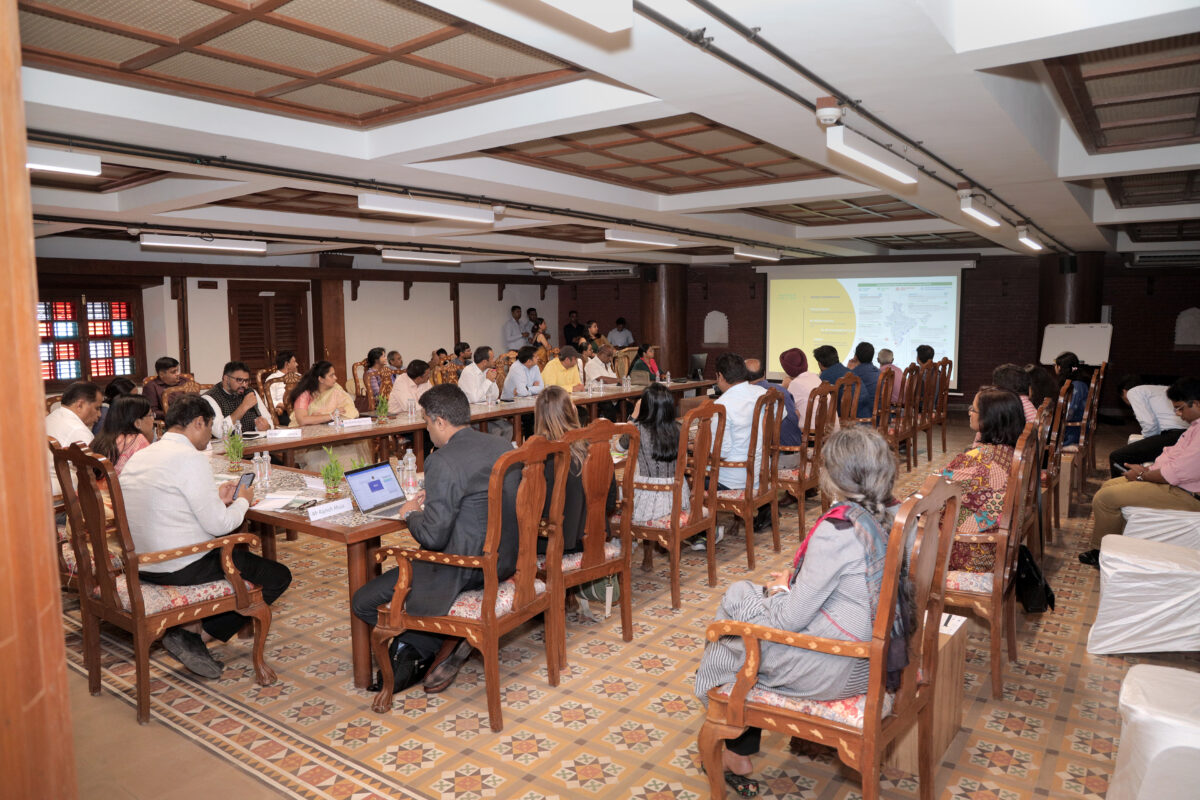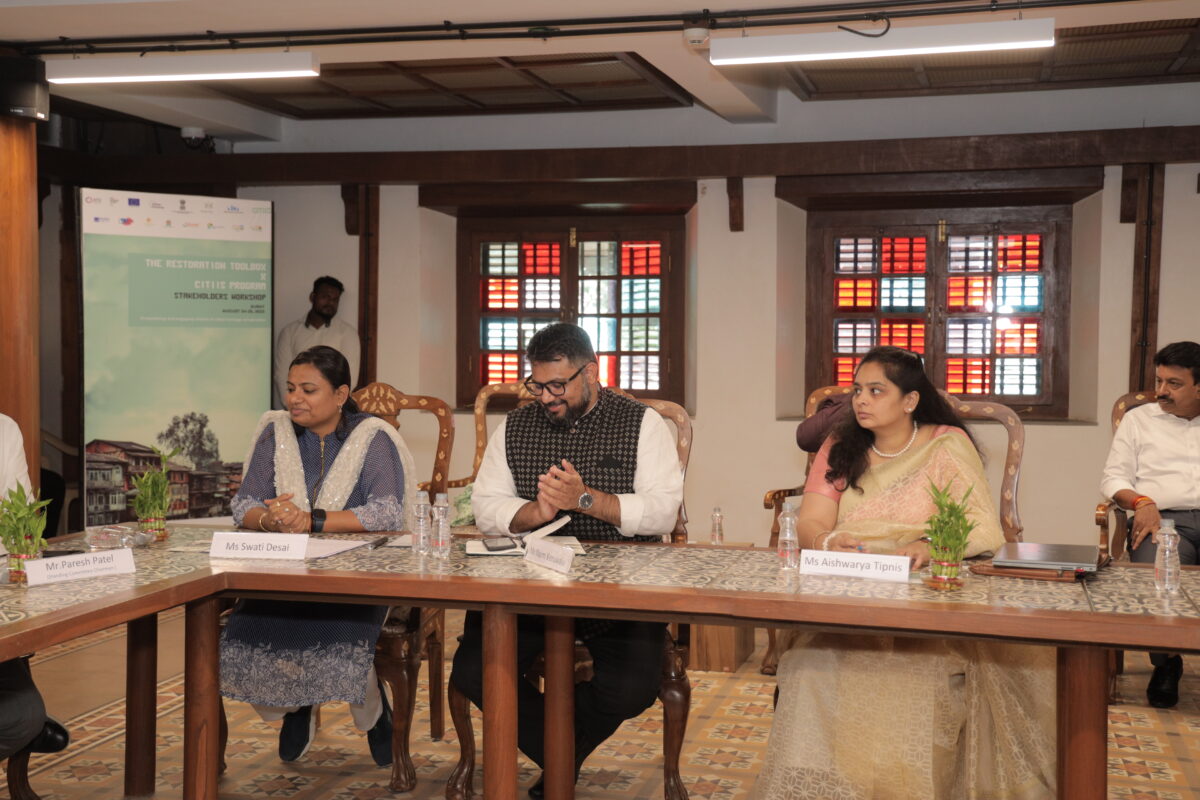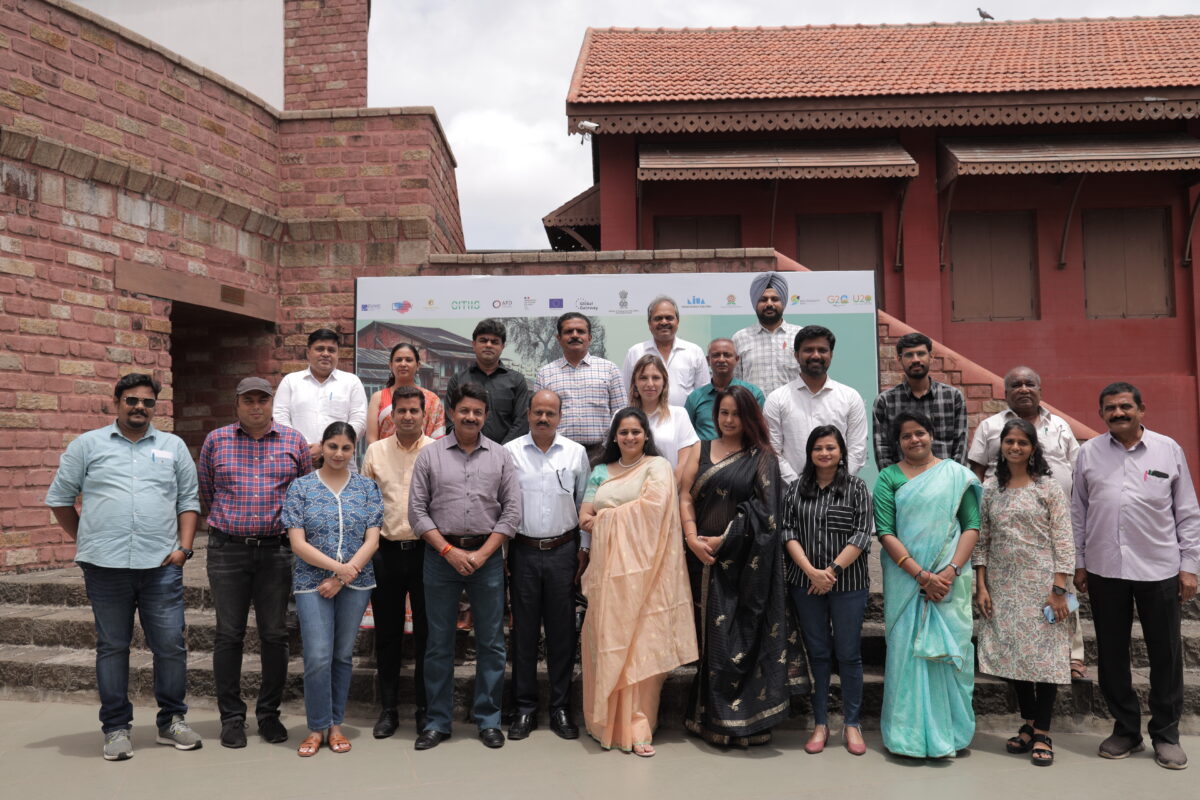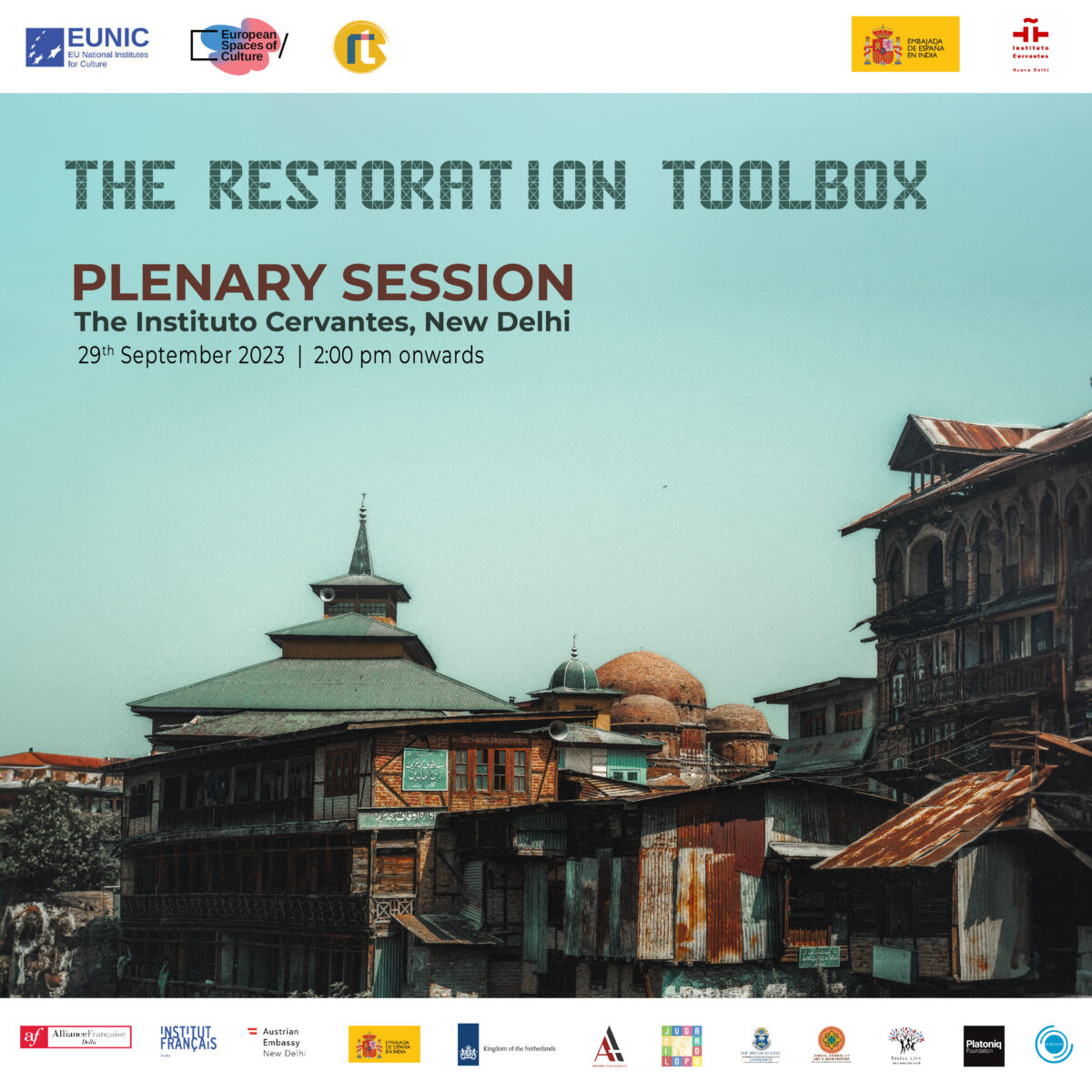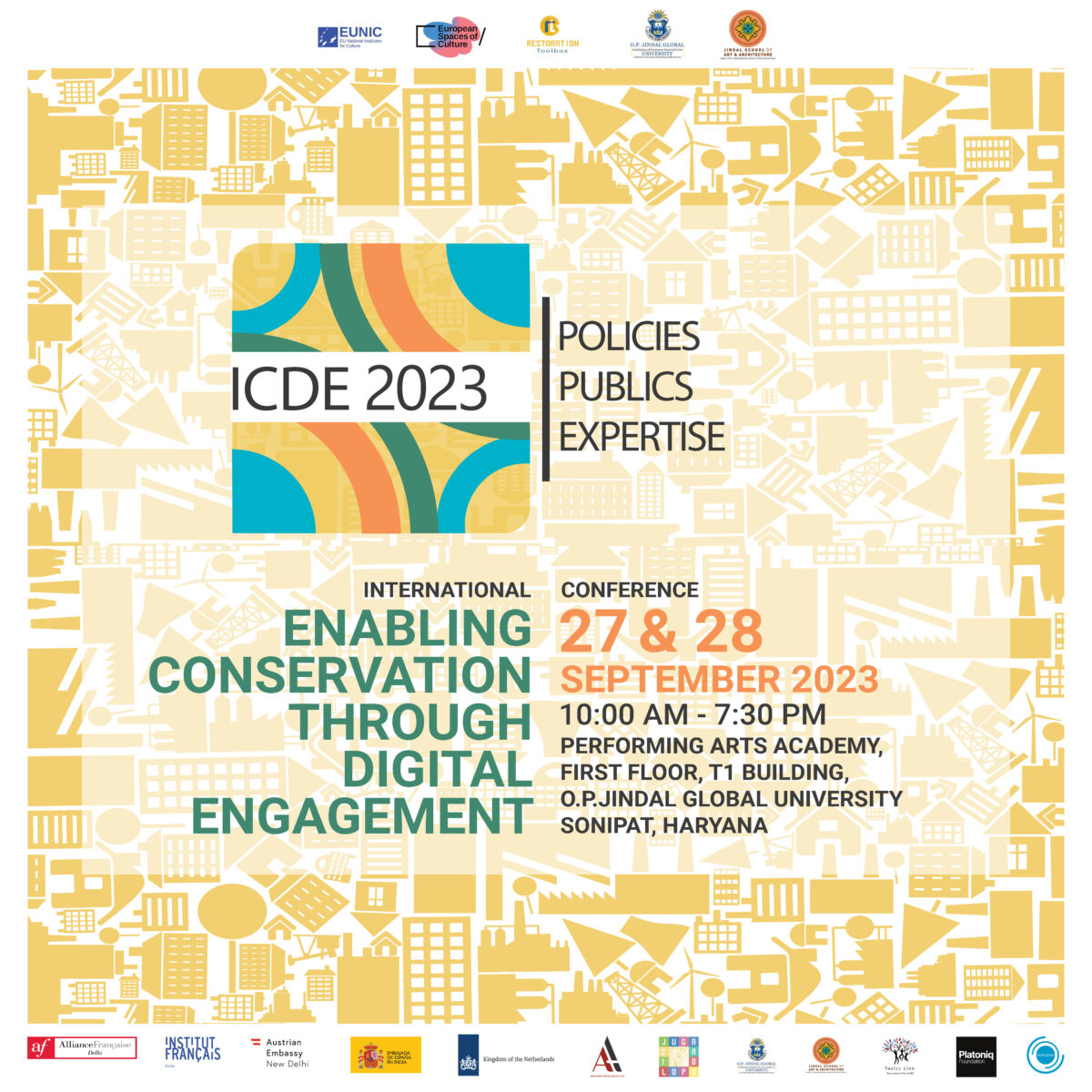The Restoration Toolbox is an open-source participatory platform for restoration and preservation of everyday urban heritage. One of the 8 international projects selected by the EU National Institutes for Culture (EUNIC) as part of the EU funded European Spaces of Culture 2023, it aims to empower citizens and communities to restore buildings, improve accessibility to expert advice and provide a space for collaboration between citizens and policy makers. The project partners include the Delegation of the European Union to India, Alliance Française Delhi, French Institute in India, Embassy of the Kingdom of Netherlands in India, Austrian Embassy New Delhi, Embassy of Spain in India, Aishwarya Tipnis Architects (Jugaadopolis), the Just Environment (Toxics Link), OP Jindal Global University, FUNDACIÓN PLATONIQ and Eutropian GmbH.
As a natural process, cities face wear and tear of buildings. As a worldwide phenomenon, we see old buildings being replaced with nondescript buildings, that not only change the urban landscape but also severely impact pollution levels, harm local communities as well the planet. Research has proven that restoration and adaptive reuse of existing buildings can substantially contribute to circular economy and creating smart cities. However, sometimes lack of access to information, experience and technical skills makes the decision to retain and retrofit an old building unviable.
The Restoration Toolbox creates tools and spaces to promote participatory heritage conservation in India, using open-source digital technologies to empower citizens and local communities to preserve their own heritage. At the core of this project, led by the Indian architect Aishwarya Tipnis, lie the ideas of transferability of cross-cultural knowledge, and capacity building at the community level.
Following its successful platform launch at Alliance Française Delhi in April, the Restoration Toolbox gathered key heritage stakeholders on the occasion of two workshops, in Kolkata (West Bengal) and in Surat (Gujarat).
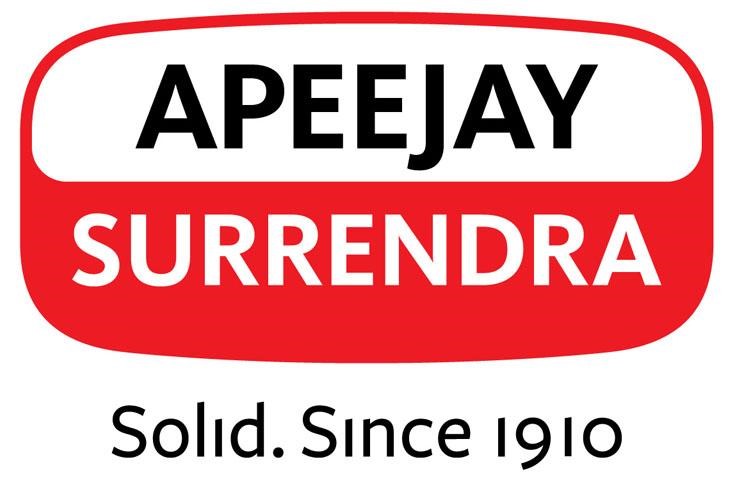
On the 11th of July, Alliance Française du Bengale held a one-day heritage workshop, with the aim of helping the project partners and stakeholders to agree on an ethical framework for the involvement of communities and institutions in the Restoration Toolbox platform. As a case study, the participants discussed the ongoing restoration and reuse project of the Registry Building in Chandannagar. This unique project, led by the Embassy of France in India and the Government of West Bengal, intends to set an example in the field of sustainable heritage restoration. France is providing its conservation expertise with the constitution of a French Technical Expert Team, whose activities are supported by Apeejay Trust. On the occasion of this participatory workshop, representatives from both the Apeejay Group and the Government of West Bengal had the opportunity to reflect upon the public-private partnerships in the heritage field, and on the co-design of the methodologies to be deployed.
On the 24th and 25th August, the European Union Delegation to India, the National Institute of Urban Affairs (NIUA), the Agence Française de Développement (AFD), the State Government of Gujarat, Surat Municipal Corporation, EU National Institutes for Culture (EUNIC), along with Aishwarya Tipnis Architects (Jugaadopolis) and Toxics Links, came together in Surat to introduce the Restoration Toolbox to officials from 10 cities in the CITIIS program cohort. This two days’ workshop provided a platform for the officials to explore how this open-source digital tool – inspired from the concept of circular economy and the EU Green Deal – can be applied in the Indian context as well as seek first-hand feedback from the stakeholders it directly impacts. This collaboration with CITIIS is a crucial step towards engaging with the municipal governance and policy makers on the matter of conserving, repurposing and renovating historic buildings in historic Indian cities. Through the reduction of construction waste and the empowerment of local heritage stakeholders, the Restoration Toolbox eventually creates a space for collaboration between Indian and European experts and municipalities to co-create sustainable futures.
The Restoration Toolbox participants will gather again at the end of the month in Delhi, on the occasion of the International Conference on Enabling Conservation through Digital Engagement, organised by the Jindal School of Art and Architecture in collaboration with Jugaadopolis, Alliance Francaise de Delhi, European Union, Aishwarya Tipnis Architects and Jindal Global University. This conference will be held on the 27th and 28th of September, at the JGU campus in Sonipat, and will delve into the discourse of public policies and conservation within the digital medium. On the 29th of September, all the partners of the Restoration Toolbox will gather at the Instituto Cervantes in New Delhi for a final plenary session.

